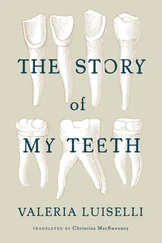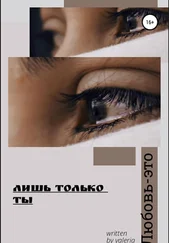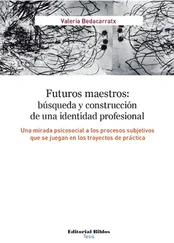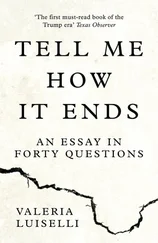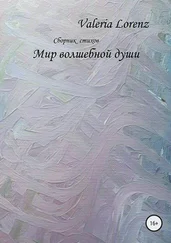Hooked on the biblical myth of Paradise, we’d like to believe that the names of things are precise and imperative, that there’s a word in the core of each thing and that pronouncing it is equivalent to unveiling the very essence of the object; that the act of speech is similar to the fiat of the Creator. There may be some truth in this, but the fact is that the process of acquiring a first language is as involuntary as stuttering or aphasia. Rather than a memory of Paradise, learning a language is a first banishment, an involuntary, silent exile to the interior of that nothing in the heart of everything we name. Perhaps learning to speak is realizing, little by little, that we can say nothing about anything.
Danger zone
There is a poem I like, written by Ghérasim Luca shortly before his death. It’s titled “Passionément” and begins with a stutter:
pas pas paspaspas pas
pasppas ppas pas paspas
le pas pas le faux pas le pas
paspaspas le pas le mau
le mauve le mauvais pas
Luca had been in France for thirty, forty years, his whole life — it makes no difference — when he wrote those lines. He had abandoned Romania, the Romanian language, pursued by the same terror that expelled so many others from their countries and their homes during the twentieth century. Luca wrote stuttering poems full of holes. He inhabited French, a foreign language to him, and carried it to the limits of its syntax, to the other side of grammar. He continues:
je je t’aime
je t’aime je t’ai je
t’aime aime aime je t’aime
passsionné é aime je
je t’aime
passionnément aimante je
t’aime je t’aime passionnément
je t’ai je t’aime passionné né
je t’aime passionné
je t’aime passionnément je t’aime
je t’aime passio passsionnément
One day he jumped into the River Seine. Leaning over the parapet of the bridge, did Ghérasim Luca’s eighty-year-old body tremble before he jumped into the water? Did it stutter like the last line of his poem, which trips up on passio and falls: passionnément ? The poem begins with a faux pas, a false step, and everything that follows is a fall. To where? “ When a language is so strained, ” writes the French philosopher Gilles Deleuze, “that it starts to stutter, or to murmur, or stammer. . then language in its entirety reaches the limit that marks its outside and makes it confront silence.” Luca’s poem is the downward plunge of language toward that silence.
Mind the gap
That instant, that silence we leave in the middle of any old sentence: I was standing in. . How do you say it? That rectangular wooden frame, sometimes the way out, but also the entrance. Seuil in French, soglia in Italian. What is the word? It was one of the first I learned — one of my earliest childhood memories is of standing under the frame of a door, while my house trembled and convulsed in rapid spasms.
It was September 19, 1985, 7:20 a.m. People were sleeping, showering, kissing their kids good-bye, seeing them off to school, tuning in radios, making coffee, making love. Then a shock — a blow — so slow — so hard — so deep — and it all came down.
We grew up knowing it could be repeated, at any time. The city could fall apart all over again. It was a temporary, transient, ephemeral place. It’s hard now not to look back on Mexico City without awe — hard not to wonder how it is that the city has really not fallen, imploded, sunk, plummeted, shifted.
It hasn’t. It won’t. But it is full of holes and absences — like a child struggling, scuffling, stuttering to find the right word, to fill a gap.
Building materials
A few blocks from my house are the ruins of a building: a mausoleum for television sets, suitcases, telephones, books, newspapers, dolls, families. The elderly doorman of the property opposite says it was over five stories tall, a very modern building, from just before the big earthquake. Now, the pile of rubble is less than seven meters high and on top of the debris there’s a Mexican flag, cats, political propaganda, a scarecrow, and a couple of dogs called Ponchadura (“Flat Tire”) and Mr. President López Obrador. Hung between two metal bars, a sign announces, “We are in the process of” and the next word has been rubbed out — perhaps on purpose.
We are in the process of losing something. We go round leaving bits of dead skin on the sidewalk, dropping dead words into a conversation. Cities, like our bodies, like language, are destruction under construction. But this constant threat of earthquakes is all that’s left to us. Only that kind of scene — a landscape of rubble piled on rubble — compels us to go out and look for the last remaining things. Only under that threat does it again become necessary to excavate language, to find the exact word.
Watch your step
With that strange impulse that, when we’re incapable of finding the exact word, leads us back to books already read — as if we’d discover there a remedy or, perhaps, redemption — I open my French edition of In Search of Lost Time . This is something I first did in the library of the Pompidou Center, some years ago. I was convinced that the only way to learn French was by reading its writers. Not understanding didn’t matter because the language would gradually seep through into my conscious mind, and all that was needed was a great deal of obstinacy, a notebook, and a Petit Robert —never a bilingual dictionary — in which to look up the words that, even after intense effort, were impossible to make out.
I understood practically nothing of the French and spent hours on a single paragraph, imagining the possible meanings of bougie, quatour, écailles —words I now find underlined in my copy. The écailles were, surely, to my Spanish-language ears, the escaleras, the stairs; and then “pesait comme des écailles sur mes yeux” was “weighed like stairs on my eyes,” and not, as I later understood, “weighed like scales on my eyes.” There are words that contain and words that overflow. Foreign words, the ones we don’t know and whose meaning we can barely guess at, spill out their probable content.
I now reread some paragraphs of À la recherche with a certain sadness, conscious that a language that is learned will never be a stairway but always a heavy scale on the lips. I know the prepositional phrase “en train de” will never again be a train that crossed certain written or spoken utterances because at some moment it became, forever, a mere verb tense.
Dangerous junction
Legend has it that Samuel Beckett, while lying ill in the bed in which, a few days later, he would die, took up his pen to write his last poem:
comment dire –
comment dire
Later, as if he’d climbed over a wall and seen revealed, on the other side, the outside, his forever foreign language, he rewrites in English:
what is the word —
what is the word
The language that Beckett, who was his own translator, inhabits is an intermediate space between one place and another, an outside and an inside.
The threshold — that’s the word.
Unloading zone
Wittgenstein used to imagine language as a great city permanently under construction. Like cities, language had modern areas, spaces in the process of renovation, historic zones. There were bridges, underground passages, walkways, skyscrapers, avenues, and narrow, silent streets.
Читать дальше

